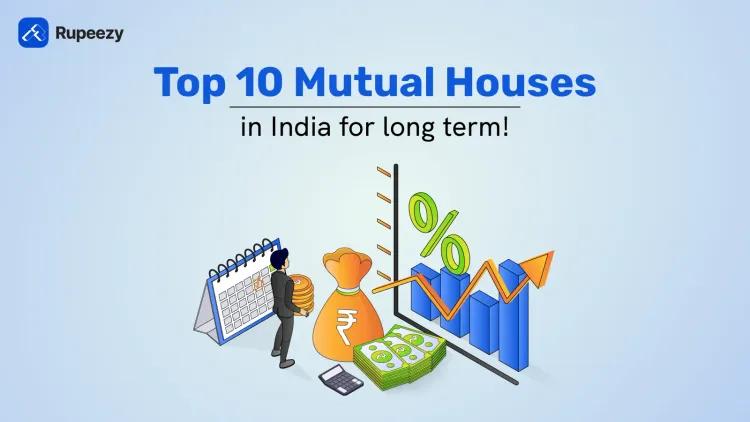Registrar and Transfer Agent - RTA in Mutual Funds


00:00 / 00:00
Have you ever thought who keeps the records of your mutual fund investments and accurate records of dividend payments that ensure they are received promptly? The RTAs are essential but often overlooked facilitators in the financial ecosystem who ensure that these processes run smoothly. RTAs serve as a vital link between investors and mutual fund companies, managing records, verifying investor information, processing transactions, and ensuring regulatory compliance. In this article, we will look at the full form of RTA, what is RTA, its role in mutual funds, why they are important, and others. Let’s continue to know more.
What is RTA in Mutual Fund?
The full form of RTA stands for Registrar and Transfer Agent, which are registered with the Securities and Exchange Board of India (SEBI) and function under its supervision. These agents act as a middleman between investors and mutual fund companies. Providing thorough, accurate, and transparent information is their main responsibility. They are experts in keeping detailed records of all mutual fund transactions on behalf of the fund house by serving as an intermediary between investors and mutual fund companies.
RTAs are essential because they monitor mutual fund transactions. These include:
Purchasing and redeeming mutual fund units.
Updating personal and bank information.
Switching between different schemes.
Handling KYC and FATCA compliance for mutual fund investors.
Role and Responsibilities of an RTA
After understanding the meaning of RTA, we will look at the role and responsibilities performed by the registrar and transfer agent in India:
1. Safeguarding Investor Data
With mutual funds becoming a popular investment option in India, RTAs play an increasingly important role. These agents serve as the communication and service bridge between Asset Management Companies (AMCs) and investors. Whether someone invests via a lump sum or a Systematic Investment Plan (SIP), the RTA is tasked with tracking every transaction and updating the number of units held by the investor.
RTAs are also responsible for handling investor queries, managing redemption requests, and ensuring that payouts such as dividends or maturity proceeds are credited to the correct accounts. In addition, they handle the Know Your Customer (KYC) process, which is an essential step for investor verification and regulatory compliance. Keeping investor details up to date helps to track records, minimize fraud, and support a secure investing environment.
2. RTAs and Share Ownership Transfers
They are crucial for services like stock market transactions involving the purchase or redeeming of shares. From updating the company's shareholder records to reflect changes, they help ensure a seamless transfer of control. This helps to ensure transparency and trust in equity transactions.
Services offered by RTAs
We looked at roles and duties, and here we will understand some services offered by the registrar and transfer agent:
1. Services to Asset Management Companies (AMCs)
RTAs and AMCs collaborate, with RTAs handling key functions like operations, investor service, and distribution. They assist AMCs in maintaining accurate and comprehensive records of each transaction and investor information.
2. Services to Mutual Fund Investors
RTAs provide services to investors to invest through New Fund Offers (NFOs), bridging with mutual fund companies. Some of the RTA services provided to the mutual fund investors include generating various statements, such as Consolidated Account Statements (CAS), from RTA websites that provide an overview of their mutual fund investments across multiple AMCs. Investors can also update personal or investment information, start or cancel SIPs, update bank accounts, and complete E-KYC.
3. Services to Mutual Fund Distributors
RTAs enable mutual fund distributors to serve their clients by purchasing and redeeming funds on behalf of their investors. They accept digital forms and handle KYC documents for both investors and distributors.
Major Registrar and Transfer Agent in India
After looking at the services provided by RTAs to mutual funds, we will look at the table below for some of India's major RTAs, namely:
SL. No | Major RTAs in India |
1. | Link Intime India Pvt. Ltd. |
2. | Computer Age Management Services (CAMS) |
3. | KFin Technologies Pvt. Ltd |
4. | Alankit Assignments Ltd |
5. | Bigshare Services Pvt. Ltd |
6. | NDML (National Depository and Management Ltd) |
7. | SAG RTA |
8. | CDSL Ventures Ltd. |
9. | MCS Share Transfer Agent Ltd. |
10. | Cameo Corporate Services Ltd. |
Why is an RTA Important?
The registrar and transfer agent acts as an intermediary between companies and investors, ensuring that their interactions are smooth and transparent while adhering to all applicable regulatory standards. Let us examine why RTAs are important for mutual funds and other corporate actions.
1. Maintaining Proper Shareholder Records
RTAs ensure that shareholder data is kept properly and accurately, ensuring up-to-date records are maintained. This helps to reduce burdens for businesses to store data while it reduces the risk of miscommunication or outdated data.
2. Transferring Securities
When mutual fund units are purchased or redeemed, RTAs ensure that the transactions with AMCs are processed efficiently and records are accurately updated without unnecessary delays. This will help to avoid errors that could lead to confusion or noncompliance.
3. Handling Dividend Distribution
RTAs monitor dividend payouts from mutual funds to ensure that distributions are accurately processed and credited to the respective unit holders in the correct amounts and on time.
4. Ensures Compliance with Regulatory Bodies
While maintaining compliance with regulatory bodies, particularly those established by the SEBI and Association of Mutual Funds in India (AMFI), is crucial. RTAs ensure that companies meet these obligations by keeping proper records, submitting timely reports, and adhering to prescribed procedures. This ensures both the AMCs and the investors follow regulatory practices.
RTA vs AMC
Here are some of the key differences between RTA and AMC. Let’s take a look at the table below:
Aspects | RTA (Registered and Transfer Agent) | AMC (Asset Management Company) |
Meaning | Financial intermediaries that oversee and preserve records for investors in stocks, mutual funds, and other assets. | A company that manages investments for customers and uses a pooled sum of capital to invest in several asset classes, such as stocks, bonds, or real estate. |
Serve | Works on behalf of multiple AMCs, companies, or mutual funds. | Assist investors by developing and managing mutual fund programs. |
Function | Their primary function is to provide detailed, accurate, and transparent information. | Makes investment decisions, manages portfolios, and aims to generate returns. |
Regulated | SEBI (as Interme), AMFI | SEBI (as fund managers) |
Top Companies | Link Intime India Pvt. Ltd, Computer Age Management Services (CAMS). | HDFC AMC, ICICI Prudential AMC. |
What Happens When an RTA Fails?
If the respected RTA fails to provide an adequate solution to your issues or does not fulfill its responsibility, you can file a complaint by bringing this matter to the attention of the grievance agencies or the Asset Management Company (AMC), as they are responsible for ensuring that the RTA performs its role in the best interests of the investor.
Suppose the above solution does not work, or your problem has not been resolved properly. In that case, you can escalate the situation by filing a formal complaint using the online grievance redressal platforms of the Securities and Exchange Board of India (SEBI), including the SCORES portal. The portal system will facilitate the resolution of investor grievances.
Use the procedures listed below to accomplish this:
Visit the official SEBI SCORES portal at https://scores.sebi.gov.in to begin the complaint registration process. If you're a new user, click on “Sign in/Sign up” and then choose “Register as an Investor” to create an account.
Then you can click on the "Fill Registration Form" section.
You can register by fetching your details from the KYC Registration Agency (KRA) database using your PAN and date of birth.
Next, use your registered login information to access SCORES.
Select the appropriate category and entity for the complaint to be filed.
You can track the status of your complaint and request that it be reviewed at various levels.
Conclusion
As we conclude the article, we understood how RTAs work in the background, and their impact is visible in every smooth investment experience. They serve as the foundation for investor trust in mutual funds and stock markets, from accurate transaction tracking to regulatory compliance. If you have ever received a timely payout or switched funds without incident, thank your RTA. In a world where trust and transparency are critical, RTAs make finance feel a little less complicated and a lot more secure.
Check Out These Related Articles |
The content on this blog is for educational purposes only and should not be considered investment advice. While we strive for accuracy, some information may contain errors or delays in updates.
Mentions of stocks or investment products are solely for informational purposes and do not constitute recommendations. Investors should conduct their own research before making any decisions.
Investing in financial markets are subject to market risks, and past performance does not guarantee future results. It is advisable to consult a qualified financial professional, review official documents, and verify information independently before making investment decisions.

All Category









